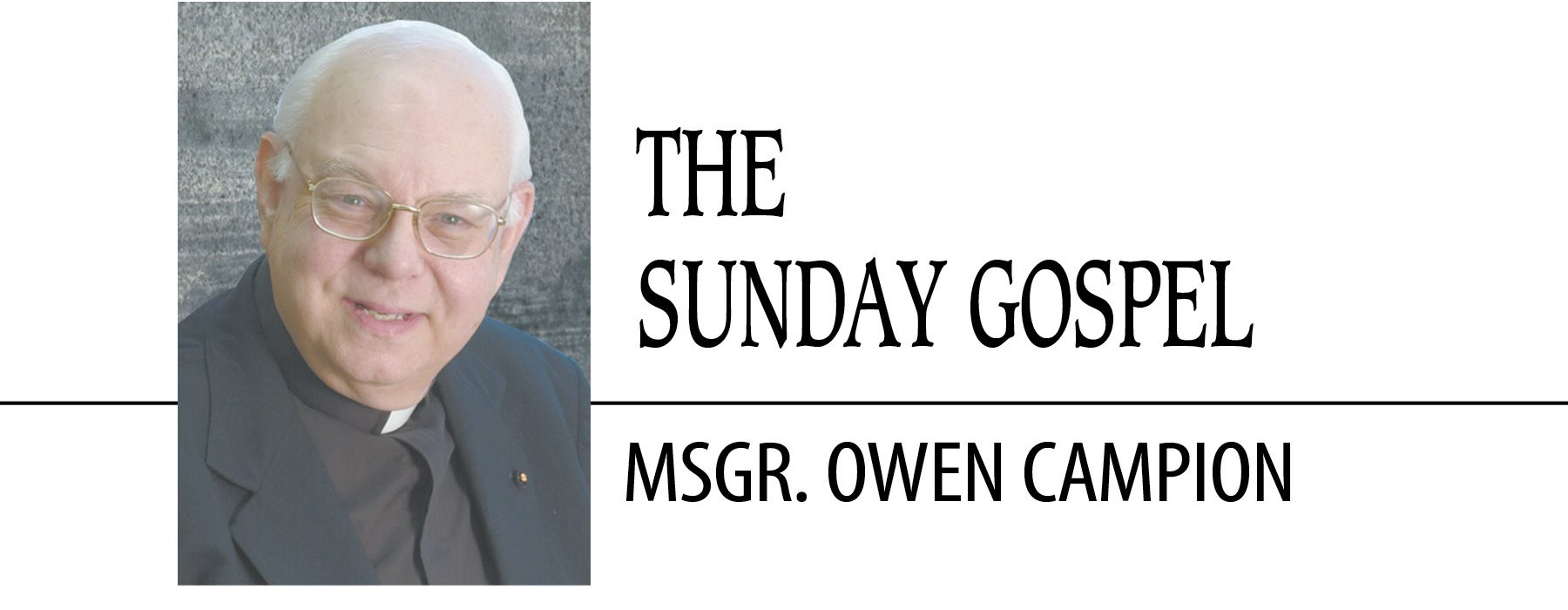January 9, 2021 // The Sunday Gospel
Listen to the Lord, that you may have life
Feast of the Baptism of the Lord
Mark 1:7-11
This weekend, the Church invites us to celebrate the great feast of the Baptism of the Lord, great because it commemorates a very important event in the life of Jesus and in the unfolding of salvation but also draws our attention to marvelous and fundamental aspects of our salvation.
Jesus, the Son of God, the Redeemer, very much is the centerpiece of all three readings, although of course the Book of Isaiah, from which comes the first reading, only prefigures Jesus. The Lord was not yet born as a human when this first reading was written.
Isaiah mentions no one by name, but the reading describes a faithful servant of God who, although suffering unjustly and greatly, will be steadfastly faithful to God.
Over the centuries, several passages from Isaiah, similar in literary construction and in reference to the figure that Christians have called the “Suffering Servant,” has been very popular among the pious. Believers through the ages have seen in them a description of Jesus. These passages also provide readings for Holy Week, precisely for Good Friday.
In the second reading, from the Acts of the Apostles, Peter stands as the principal figure. He appeared before Cornelius, whose name indicates Roman origins. In itself, this encounter is greatly revealing. Peter did not limit his interest to Jews, whose heritage Peter shared.
Rather, Peter preached the Gospel to pagans, and indeed to the despised Romans, who were responsible for the military conquest and occupation of the Holy Land, a circumstance detested by the Jews.
Peter’s message was crisp but profound. Salvation is in Jesus. The Holy Spirit anointed Jesus as the Savior. God was with Jesus as the Lord went about “doing good works” and healing the sick.
This point too is crucial. The pagan Cornelius yearned for what is good and perfect and thus wholeheartedly accepted Christ. Union with God fulfills every human’s need.
St. Mark’s Gospel furnishes the story of the Lord’s baptism in the River Jordan by John the Baptist.
Ritual washings, or baptisms, were popular in certain Jewish circles in the first century A.D. Homes were built with ceremonial baths. A person could visibly state the desire to be rid of sin, as if sin literally soiled the body, by washing in water.
John the Baptist acknowledges Jesus as the Redeemer. John insists that he himself is not the Savior. John confesses that he is “not worthy to loosen” the sandal-straps of the Savior.
The Gospel is clear. Jesus is the perfect, innocent and utterly sinless Lord. Still, and critically, Jesus assumes the sinfulness of humankind. Then God identifies Jesus as the Savior, and moreover as the Son of God. To make this declaration clear, God speaks, and gestures, in ancient Old Testament words and symbols that no Jew would have misunderstood.
Reflection
This feast is great because it clearly and expressly reveals to us the Lord’s identity. He is the Son of God. Not even a prophet of John’s holiness and tenacious faith was the Lord’s equal.
Secondly, Jesus assumed the sinfulness of us all. As stated elsewhere in the Scriptures by St. Paul, Jesus is the new Adam, a new and perfect representative of the human race. Unlike Adam, Jesus causes union with God, not estrangement from God. Jesus brings life, not death; holiness, not fault.
Common human nature unites all people with the Lord. He confirms this union by freeing us all from the consequences of human sin.
We are sinners, but in Jesus, we find reconciliation with God. Our reconciliation through Jesus is perfect, unbroken and absolute. In it is eternal life.
Especially note that Peter spoke for the other Apostles, for the Christian community and, most importantly, for Jesus. It affirms the papacy.
The best news. Delivered to your inbox.
Subscribe to our mailing list today.






